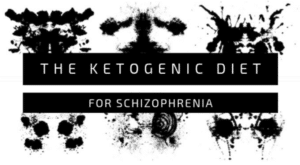Articles by Dr. Palmer
Dr. Palmer’s Research
Dr. Palmer has been pioneering the use of the medical ketogenic diet as a treatment for mental disorders. In 2022, he introduced the brain energy theory of mental illness, revealing that mental disorders are metabolic disorders of the brain. He collaborates with researchers from around the world to develop and research metabolic therapies to improve the lives and health of those living with mental illness.

Metabolic and Mental Health Closely Linked.
By Megan Brooks for Medscape. April 5, 2024.

A Harvard brain expert shares 6 things he never does in order to stay ‘sharp, energized and healthy’.
By Christopher Palmer, MD, CNBC Contributor, December 16, 2022.
From Dr. Palmer’s column, Advancing Psychiatry, in Psychology Today:
Brain Energy: The Metabolic Theory of Mental Illness. Decades of research suggest that mental disorders are metabolic disorders.
Craving Sweets? You Might Need More Sleep. In this article Dr Palmer discusses how sleep deprivation can increase sugar consumption and how prioritizing sleep can lead to a healthier diet.
A Mother’s Diet May Affect Her Child’s Mental Health What a woman eats around the time of conception is associated with mental health outcomes in her children.
“The Ketogenic Diet May Play a Role in Treating Alcoholism” This article describes the first-ever randomized, controlled trial of a dietary intervention in treating alcohol use disorder, most commonly known as alcoholism. Researchers from the NIH showed that this diet changed brain metabolism, reduced alcohol withdrawal symptoms, and reduced cravings for alcohol.
“Changing a Child’s Diet Might Help Prevent Mental Illness” This article describes new research linking insulin levels and an increase in body mass index around the time of puberty to much higher rates of depression and psychotic disorders, such as schizophrenia and bipolar disorder.
“Don’t Waste These Difficult Days” Finding your sense of meaning and purpose is essential in getting through the chaos and stress of this pandemic.
The Mental Health Survival Guide to the Pandemic: Threats In Part 2 of this series, we review the near-term threats to mental health—mindless activity, losing a sense of meaning and purpose, substance use, loneliness, and depression.
The Mental Health Survival Guide to the Pandemic Worried about the coronavirus and the economy? You’re not alone. Read more about the mental health risks of this pandemic, social distancing, and the economy.
Making Sense of Nutritional Psychiatry. Can nutrition and diet affect your brain? Making sense of the hype, the wild claims, and the misinformation, along with the science.
Are Americans Addicted to Screens—or Just Burned Out? New research shows Americans sitting even more of the day in front of screens.
Six Steps to Stop an Addiction to Sugar and Junk Food. A new summit on sugar addiction launches this week.
Chronic Schizophrenia Put Into Remission Off Medications. New research suggests ketogenic diet may play a role in treating schizophrenia.
The Ketogenic Diet May Help Stop Seizures. This dietary treatment based on ancient medicine is making a comeback.
Exercise and Fasting Linked to Brain Detox. New research paves the way for possible prevention of Alzheimer’s Disease.
Diabetes and Depression: Which Comes First. These two illnesses have more in common than you probably realize.
Is it Safe to Face Your Trauma? Are you terrified to face your trauma history? New research says you should.

7 ways that diet can affect — and improve — your mental health. By. Dr. Christopher M. Palmer in NEUROPSYCH November 18, 2022 (Reprinted with permission from Brain Energy by Christopher M. Palmer, MD (BenBella Books, Inc., 2022).

Brain Energy: The Metabolic Theory of Mental Illness. By Chris Palmer MD for drfranklipman.com. January 23, 2023.

Rauch, AL. Palmer CM. Ketogenic Therapy for Brain and Mental Health. Charlie Foundation for Ketogenic Therapies.
Medical Journals
Norwitz NG, Dalai SS, Palmer CM. Ketogenic diet as a metabolic treatment for mental illness [published online ahead of print, 2020 Aug 6]. Curr Opin Endocrinol Diabetes Obes. 2020;10.1097/MED.0000000000000564. doi:10.1097/MED.0000000000000564 VIDEO ABSTRACT: https://cdn-links.lww.com/permalink/coe/a/coe_2020_07_08_palmer_med270505_sdc1.mp4
Zoltán Sarnyai, Christopher M Palmer, Ketogenic Therapy in Serious Mental Illness: Emerging Evidence, International Journal of Neuropsychopharmacology, , pyaa036, https://doi.org/10.1093/ijnp/pyaa036
Sarnyai Z, Kraeuter AK, Palmer CM. Ketogenic diet for schizophrenia: clinical implication. Current Opinions in Psychiatry. 2019 Sep;32(5):394-401. doi: 10.1097/YCO.0000000000000535.
Palmer CM. Diets and Disorders: Can Foods or Fasting Be Considered Psychopharmacologic Therapies? Journal Clinical Psychiatry. 2019 Jul 9;81(1). doi: 10.4088/JCP.19ac12727.
Palmer CM, Gilbert-Jaramillo J, Westman EC. The ketogenic diet and remission of psychotic symptoms in schizophrenia: Two case studies. Schizophrenia Research. 2019 Jun; 208:439-440. doi: 10.1016/j.schres.2019.03.019. Epub 2019 Apr 6.
Gilbert-Jaramillo J, Vargas-Pico D, Espinosa-Mendoza T, Falk S,
Llanos-Fernández K, Guerrero-Haro J, Orellana-Román C, Poveda-Loor C,
Valdevila-Figueira J, Palmer CM. The effects of the ketogenic diet on psychiatric symptomatology, weight and metabolic dysfunction in schizophrenia patients. Clinical Nutrition and Metabolism. July 31, 2018. Volume 1(1): 1-5. doi: 10.15761/CNM.100010
Palmer CM. Ketogenic diet in the treatment of schizoaffective disorder: Two case studies. Schizophrenia Research 2017 Nov;189:208-209. doi: 10.1016/j.schres.2017.01.053. Epub 2017 Feb 3.
Articles about Dr. Palmer’s work

7 Easy Ways To Reset Your Metabolism & Enhance Whole-Body Health. By Morgan Chamberlain for MindBodyGreen Health. January 14, 2023.

“Brain Energy: A Revolutionary Breakthrough in Understanding Mental Health–and Improving Treatment for Anxiety, Depression, OCD, PTSD, and More” (BENBELLA BOOKS 2022). By Sine Yaganoglu for New Books Network. December 23,2022.

New book explores the link between mental health and metabolic conditions: In ‘Brain Energy,’ a Harvard psychiatrist examines how mitochondrial dysfunction may cause symptoms of mental illness. By Alexandra Hart for The Texas Standard: The National Daily News Show of Texas. December 23, 2022.

‘Brain Energy’ Book Review: Is CrossFit the Grassroots Movement of Mental Health? By Janette Hynes in THE BARBELL SPIN. December 19, 2022.

The Next Big Idea Club’s November 2022 Nominees

3 Must-Read Books to Help Improve Your Mental Health: Our mental well-being at work is more important than ever. By Marcel Schwantes in Inc. October 10, 2022
Baszucki Brain Research Fund and the Milken Institute Announce Metabolic Mind Award Recipients in Yahoo Finance, November 15, 2022
The Cellular Link Between Mental illness and Metabolic Disease: A Harvard psychiatrist argues that mitochondrial dysfunction underlies both. By Markham Heid in Medium October 6, 2022.
Brain Energy by Christopher Palmer, MD: A Review By Dr. Ronald Hoffman

I Can’t Get No Satisfaction: Harvard Medical School’s Dr. Christopher Palmer On Why So Many Of Us Are Feeling Unsatisfied & What We Can Do About It. An Interview with Drew Gerber in Authority Magazine October 31, 2022
How Healthy Diets Like the Mediterranean Diet Help Protect Brain Health. By Julia Reis in Healthline September 16, 2022
Working Nights? Try Eating During the Day to Protect Your Mental Health. By Shawn Radcliffe in Healthline September 12, 2022

Surprising Benefits of the Keto Diet for Weight Loss and Mental Health. By Emily Riemer. April 30, 2021.Link:

Can You Eat to Beat Depression? By Debbie Koenig in WebMD’s Health News. December 2, 2019.

Prescription: More Broccoli, Fewer Carbs. How Some Doctors Are Looking To Food To Treat Illness. by Karen Weintraub for WBUR, an NPR station. June 4, 2019.

The Ketogenic Diet for Schizophrenia. By Raphael Sirtoli, PhD on Keto Nutrition from Science to Application. January 21, 2019.

Brain Food: What You Eat Impacts Your Mental Health prescription November 30, 2020

A mental health crisis is unfolding in the workplace. COVID-19 and racial injustice are to blame. By Jonathan Vanian, June 6, 2020.

The Sugar High Might Be a Myth: That afternoon treat might not improve your mood, and could make you more tired within the first hour of eating it. on Vice: Health. April 12, 2019. Retrieved from website January 26, 2020.

Low-Carbohydrate Diet Superior to Antipsychotic Medications: Two remarkable personal stories as told by their Harvard psychiatrist. Published in Dr. Georgia Ede’s Psychology Today column. September 29, 2017.

My Strict Keto Diet Is Helping Me Through This Read about Alexandra Samuel’s experience with the ketogenic diet, weight loss, and improvement in her mental health.
COVID-19 and Your Mental Health
The COVID-19 pandemic is clearly taking an emotional and mental toll on most people. The following are some resources that might help.

The Mental Health Survival Guide to the Pandemic Worried about the coronavirus and the economy? You’re not alone. Read more about the mental health risks of this pandemic, social distancing, and the economy.

The Mental Health Survival Guide to the Pandemic: Threats In Part 2 of this series, we review the near-term threats to mental health—mindless activity, losing a sense of meaning and purpose, substance use, loneliness, and depression.

“Don’t Waste These Difficult Days” Finding your sense of meaning and purpose is essential in getting through the chaos and stress of this pandemic.

